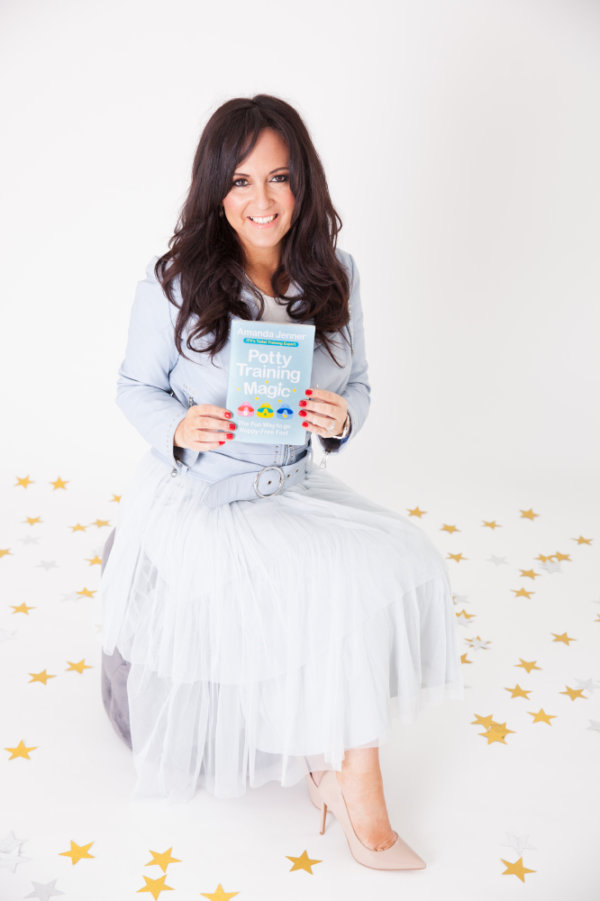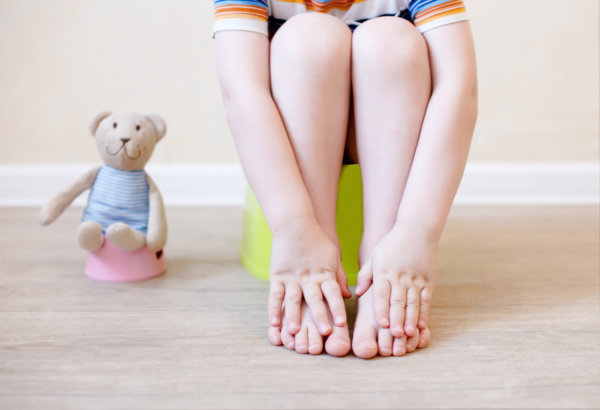
Children’s Behavioural Expert Amanda Jenner’s Top Tips for Potty Training

Parents say potty training is one of the most difficult parts of raising a child, and with so much conflicting information out there it can be hard to know where to turn. For example, ask older relatives at your own risk. In 1957, the average age to start training was 11 months, but in recent years the NHS has publicly said that most children are reliably dry until age four.
Behavioural expert Amanda Jenner has been helping millions of parents overcome this tricky stage in development. Amanda’s career took off when she launched the world’s only 100% leak-proof potty — ‘My Carry Potty’ — in 2009. She has since revolutionised the industry, launched ‘The Potty Training Academy’ and published her first book ‘Potty Training Magic’.

She’s even appeared on the hit Channel 4 show ‘Too Posh to Parent’ as well as ITV’s ‘This Morning’ and BBC’s ‘The One Show’. With celebrity clients such as Charlotte Tilbury and Lily Cole on her books, she knows a thing or two. Armed with her invaluable knowledge, we’re going to share the best tips to ensure your little ones achieve potty success without the stress!
How do you know when your child is ready for potty training?
Being able to understand basic instructions is important when you start potty training as you will need to give them direction on what they need to do. Behavioural expert Amanda Jenner says you need to be sure that your child can communicate back to you when it comes to needing a wee or poo or using the potty or toilet.
There are other signs to look out for too. Are their nappies dryer during the day? Amanda says that this is “an indication that their muscles have developed which will lead to fewer accidents”.
When their nappy is wet, do you see them trying to take it off themselves because they’re uncomfortable? This is a good sign. Amanda points out that this level of observation can be seen in other areas too. “Recognising when they are actually doing a wee or a poo is a good sign as they are starting to understand their body.”
Watch out for signs that your child is growing independent. Evidence of this might be dressing or undressing. Amanda says, “this shows they are moving onto their next key stage of development and you will often find this really does help potty training as they are keen to do things on their own.”
Word of warning
Even if these signs are apparent, there are a few instances where we recommend waiting a while before starting your potty training regime. Certain life events don’t lend themselves well to the process. Such as recently moving house, a change of circumstances within the home or having a younger sibling as a distraction. Amanda also mentions, “if your child has just started a new childcare setting this can be very unsettling and change their routine”. Recent illness may have a negative impact too.
Pro-Tip
Get your child involved in the process to make it a positive experience. Take them shopping and let them pick their own potty as well as some pants featuring their favourite animal or cartoon character. Make it an adventure!
Implement a rewards system
Every parent is guilty of bribing their kids to behave, but when it comes to potty training using positive reinforcement is key. Every child loves to be praised, so use this to your advantage.
“Using rewards is a great way to encourage your child to sit on the potty or the toilet,” says Amanda,“this can be a reward chart and stickers or even a magical star box. It is important to reward even if they try and do not perform, sometimes it can be difficult to get them sitting on the potty or the toilet and this needs a little extra encouragement.”
It takes a village
Remember you’re not alone. Talk to family members and caregivers to make sure you’re all on the same page, as this will drastically increase your success rate.
“Getting everyone involved once you start and keeping it consistent is so important” advises Amanda. “Speak to your childcare setting or any other carers so you all stick to the same routine.”
The hardest part of all this is that you will naturally measure your own child’s potty training journey against those of other kids in your inner circle. This is inevitable, but Amanda says you must try to get out of that mindset:
“Do not compare your child to anyone else. Sometimes it takes a little bit of patience and every child will learn this life skill at a different rate.”













































